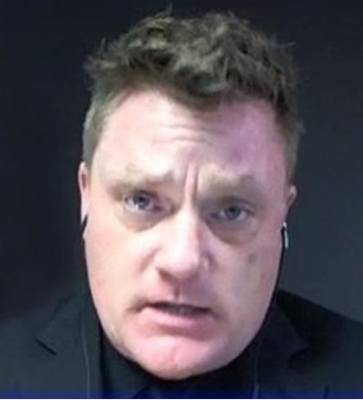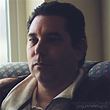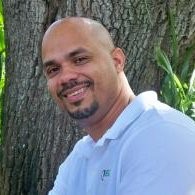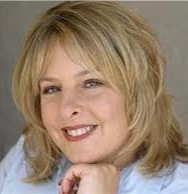About Earthfort And How It Began Fixing Broken Dirt!
Earthfort is a small company with a big heart! Earthfort was founded in 2004 in Corvallis, Oregon by Matt Slaughter (President, Lab Director and Soil Specialist of Earthfort) and Dr. Elaine R. Ingham to address the needs of Soil Foodweb testing clients on how to repair their damaged soils. Starting out in the back office of the Soil Foodweb Lab, Earthfort grew quickly, testing and reselling soil and compost related products that were commercially available and proven quality products. Soil is a fundamental resource that often needs restoration. Whether you have degraded soil or good quality soil we can help make it better. That’s why we offer our support and products to all the dedicated agricultural workers, landscape managers, and everyday farmers who care about the environment as much as we do!
For over a decade our lab has provided detailed soil biology profiles for land managers across multiple industries. Using these profiles we have created custom products to help revitalize tired, worn out soils and to boost the effectiveness of composts and teas. Utilize our expertise to help unlock the productivity in your soil! No matter what you grow, Earthfort improves its health and quality. Our expertise improves soil fertility, water retention, nutrient uptake and overall soil health. What sets us apart is the ability to measure soil health through lab testing.
Test your soil with us, attend one of our educational programs, or try our products and see how we can help you. Soil microbiology: Measure it, manage it. Earthfort labs and offices are located in Corvallis, Oregon – the heart of the beautiful Willamette Valley.
Contact us at: 541-257-2612, or email us at: info@earthfort.com.
P.J. Thomas is the founding editor and co publisher of Pathfinders Travel Magazine, a unique publication that speaks to the lifestyles and values of people of color and others who enjoy heritage and cultural tourism. She is responsible for the editorial planning and direction of the publication and the on line and digital components.
In addition, Ms. Thomas hosts ThePerfectBeachblog.com where she writes about all things beach related including U.S. and international destinations, accommodations, and beach-related product reviews.
Ms. Thomas is a frequent speaker on topics such as, African American Family Reunions, Magazine Publishing, African American Travel, Heritage and Cultural Tourism and “The Best Beaches You Never Saw” and has been honored as one of the most influential women in travel.
Pathfinders Travel Magazine received tributes from then First Lady Hilary Rodham Clinton and Richard Moe, President of the National Trust for Historic Preservation for the company’s two-year campaign for the preservation of African American Historic Sites and Cultural Institutions. She received a B.A. in journalism from Temple University and has completed Master’s course work at the University of Pennsylvania in Organizational Dynamics. When she is not traveling the world, she lives and works in Philadelphia with her husband, co publisher, Weller R. Thomas
Edel Travieso is a veteran who served six years in the US Air Force. While serving his country, Edel performed many roles including logistics, mobility air freight, traffic management and EMT. He served during Kosovo, supporting the Alabama Air National Guard. As a civilian, Edel has been in management with various companies throughout his professional career. Edel’s strengths include innovative planning, project management, business management, consulting, building science, sustainability systems... and always thinking outside the box. He holds an MBA, a BS degree in Alternative and Renewable Energy Management, a minor in teaching, and holds several professional certificates and licenses, including BPI building analyst and HERS rater. He is founding member of the Green Veterans and serves as the current chair. He is always looking for ways to help his fellow veterans by advancing the Green Veteran mission and vision. He is an active member of the U.S. Green Building Council and is passionate about veterans leading the way forward in sustainability at home and abroad.
Website: http://www.greenvets.org/index.html
Video on Green Veterans: https://www.youtube.com/watch?v=Pbq5KyDUTsU
A former gymnast of 14 years, and an accomplished triathlete herself: Gina raced in the Ironman World Championships in Kona, HI in October of 2006. She treats on site at Ironman events nationwide and is the provider of choice for many of the nation’s and worlds top Ironman triathletes.
Gina received her Bachelor’s in Communication Studies and Masters in Physical Therapy from Marquette University in Milwaukee, WI, where she served for more than 8 years on the USA Gymnastics National Health Care Referral Network; providing medical care at meets and lecturing. Currently, Gina takes care of many of our nation’s top gymnasts, including local Elites, National Team members, World Team competitors, NCAA Champions, Olympians, and Pan American Champions.
Before starting her PT career, Gina obtained a Masters in Health Communication from Michigan State University in order to broaden her education and knowledge of health care campaigns, patient-practitioner interaction, and the art of “marketing” health to her patients. While at MSU, she served as an Asst. Women’s Gymnastics coach.
Through school and after, Gina had focused on all levels of athletes and became nationally and internationally recognized as a leading lecturer, educator, and researcher. She has presented over 100 lectures for coaches, parents, gyms, and athletes on various aspects of health care. She has been published in “Technique Magazine” for gymnastics professionals and coaches nationwide, is a Medical Editor for “Inside Publications”, whose disciplines include gymnastics, dance, cheerleading and volleyball. She also writes for “Irish Dancing and Culture Magazine”, as well a medical blogger/contributor for adolescent, adult, and women’s health through “Shannon Miller Lifestyle” online.
Gina has also co-written the only American Physical Therapy Association (APTA) approved manual and course on performing arts medicine: recognized worldwide. Her Performing Arts Medicine specialization includes treatment on site of Broadway touring theater musicals and local productions. Analysis, assessment, treatment, injury prevention, program creation and tour health longevity are focuses of her time with the performers. She has been privileged to work with shows such as “Mary Poppins National Tour, Jersey Boys Chicago, A Chorus Line - National Tour, Fiddler on the Roof - National Tour, Memphis, Shrek - National Tour, the Billy Elliott National Touring Company, Motown, and The Book of Mormon”.
Gina focuses on manual therapy/hands on techniques in combination with in depth analysis of biomechanics and movement patterns. She is fully certified and serves as an instructor with Active Release Techniques, based in Colorado, the leading elite technique for soft tissue-based and overuse injuries. Gina is currently focused on both treatment and education.
In 2007 Gina started her own business: MedGym, LLC and has expanded it via websites, blogs, publications, and educational seminars, focusing on “Gymnastics Sports Medicine for Me,” a course directed at educating gymnastics coaches on the importance of injury prevention and proactive healthcare. Locally, she provides physical therapy and movement analysis, strength program creation, flexibility assessment and sport-specific biomechanics education. Gina works with many local figure skating and cheerleading clubs, dance studios, gymnastics gyms, and musicians as well as endurance sports clubs and more while providing PT services in the Chicagoland Suburbs with Achieve Orthopedic Rehab Institute.
Gina resides in the suburbs of Chicago and enjoys working out, theater and music, and spending time with her husband and three children and dog, Bucky!
Deborah Pietsch comes via the world of Hollywood, as an award-winning producer, switching gears in 2010 to allow an additional ‘calling’ to reveal itself as a cutting-edge spiritual teacher, healer, telepathic communicator and Activator. Awakened in 1987, Deb was opened up like a “tin can” multi-dimensionally. She has gone through a decade of “Activations” which have accelerated her abilities to traverse dimensions 24/7, communicate telepathically, as well as understand unexpected situations such as infiltration, the hijacking of humanity’s great awakening, the energetic effects of 9/11, the reversing energies of the Law of Attraction and much more.
In 2009 Deborah experienced another profound awakening with a visitation from a Light Being along with a week long ongoing telepathic communication of details that “humbly blew her away”. Many of the details communicated during that conversation have come to pass, and are still unfolding. Shortly after this experience, Deborah unexpectedly went in front of the camera to start an iTV and radio show called, “Wake Up…Shift Is Happening TV!” She has interviewed many guests, as well as utilized this platform for Activating Unified Fields of Light and Reality for the Betterment of Humanity. The show has been down for several years and slated to re-launch in May/June 2018.
She developed the I AM Awakening Academy, as well as online retreats, such as “Creating Your Reality”, “The 3 Day Cocoon Retreat” and Project Leap Frog. Along with, Scott Bartle, her husband and spiritual partner since 2013, both have been providing details and information about the Deception Matrix for many years; all of which are just beginning to be revealed in the MSM. Deb and Scott are Way-Showers to teach people how nefarious aspects of the current reality, aka the Enslavement Matrix, are affecting people’s daily lives. They then provide the tools, teachings and Activations to shift their experiences and reality to be aligned with their client’s heart’s desires and aspects such as Soul Matrix Destiny. They spoke at the 2014 Conscious Life Expo together, have hosted several episodes of “Wake Up..Shift Is Happening TV”, and were guests on Sean Stone’s Buzzsaw. They also produced and hosted a panel show during the 2015 Superbowl that was a Counter Protocol of Light to the nefarious agenda of the half time show.
Highlights of her past includes decades of high profile clients in the entertainment & advertising industries, and in 2000 becoming Lisa Garr’s, The Aware Show, first producer.
SPECIAL EDITION:
CELEBRATING THE LIFE AND MUSIC OF
TOMMY BOLIN
WITH SPECIAL GUESTS
JOE VITALE
KENNY PASSARELLI
AND TRACE KEANE
WELCOME to a very special edition of The Ray Shasho Show. Today we Honor & Remember ‘The Life & Music’ of legendary guitarist, singer and songwriter TOMMY BOLIN. And to help us relive those incredible and historic events… We will feature three very special guests … Joe Vitale, Kenny Passarelli and Trace Keane.
But first here is a little background about Tommy Bolin and our special guests …
BIO: Tommy Bolin was born in Sioux City, Iowa and began playing in bands around the city as a youth before moving to Boulder, Colorado in his late teens. He played with American Standard before joining Ethereal Zephyr, named after a train that ran between Denver and Chicago. When record companies became interested, the name was shortened to Zephyr. The band featured Tommy on guitar, David Givens (bass), and Givens' wife Candy (vocals). They produced two albums with Tommy and began performing larger venues, opening for more established acts such as Led Zeppelin.
In 1972 Tommy, aged 20, formed Energy, a fusion jazz-rock-blues band which featured Stan Sheldon (bass), Bobby Berge (drums), Tom Stevenson (keyboards) and Jeff Cook (vocals) who shared writing credits with Tommy over throughout his career. While the band never released an album during his lifetime, several recordings have been released posthumously. Around this period, he was invited to play on Billy Cobham's (ex Mahavishnu Orchestra) highly acclaimed Spectrum album (1973), with Tommy on guitar, Cobham (drums), Leland Sklar (bass) and Jan Hammer (keyboards). The album allowed Tommy to reach a far wider audience, and to this day, is considered one of his career highs. Jeff Beck reportedly was so impressed, he went down a similar path – ‘Stratus’ is a regular on his current concert set list. Of note, ‘Stratus’ was also sampled by Massive Attack on their 1991 track, ‘Safe from Harm’.
Reportedly, at Joe Walsh's recommendation, Tommy joined the James Gang in 1973 as Domenic Troiano's replacement (who had subsequently replaced Walsh). He recorded two albums, Bang! in 1973 and Miami in 1974. Frustrated with the band's progression he quit in August 1974 and went on to do session work for numerous artists including Dr John's ‘Hollywood Be Thy Name’ album (his guitar parts were replaced before release – tapes featuring Tommy's contributions exist, making the decision even more baffling). Alongside Lee Ritenour and Jay Grayden, Tommy laid down some stunning guitar on Alphonse Mouzon's 1975 ‘Mind Transplant’ album, considered ‘one of the best fusion recordings of all time’ by Allmusic reviewer Robert Taylor. He also jammed with The Good Rats and Carmine Appice – a rousing version of ‘Stratus’ is available through the Tommy Bolin Archive Release Live at Ebbet's Field.
Tommy signed with Nemperor Records to record ‘Teaser’, his 1975 debut solo album. Musicians included; David Foster, David Sanborn, Jan Hammer, Stanley Sheldon, Phil Collins and Glenn Hughes. Also, around this time he contributed some studio guitar assistance to Canadian band Moxy for their self-titled debut album. While recording Teaser, he was contacted to replace Ritchie Blackmore in Deep Purple.
A year earlier Blackmore had mentioned in an interview that Tommy was ‘the only American guitarist worth listening to’. But, it was apparently on the recommendation of David Coverdale – Purple's then current vocalist, that he was invited to audition for the band in July 1975. The job was immediately his. Contracts were quickly drawn up between managements allowing Tommy to continue his solo career during Purple's downtime. The band relocated to Munich to begin work on a new album. ‘Come Taste the Band’ was released in late 1975 (around the same time of the release of ‘Teaser’) with Tommy writing or co-writing seven of the album's nine tracks. At the time, many die-hard Purple (and Blackmore) fans were unhappy with album's strong funk element, but the album has aged well – the 2011 release of the 35th Anniversary edition (see discography) received ecstatic reviews. The band embarked on a world tour, but internal conflict and Tommy and Glenn Hughes' increasing drug use resulted in mixed performances – the group disbanded in March 1976.
Tommy immediately returned to the States to record his second solo album, Private Eyes, released September 1976. He then went on the road to promote the album with a rotating cast of players which included Narada Michael Walden, Mark Stein, Norma Jean Bell, Reggie McBride and Jimmy Haslip. The tour, which saw him opening for Peter Frampton and Jeff Beck, proved to be his last. His last performance was at the Jai Alai stadium in Miami December 3, 1976 where he opened for Beck. Ironically his last song was ‘Post Toastee’ – a song warning of the dangers of addiction. A day later, Tommy was pronounced dead from a drug overdose. He is buried in Calvary Cemetery, Sioux City, Iowa … Tommy Bolin was only 25 years old.
Joining us today to help share the life and music of Tommy Bolin is …
JOE VITALE … Born into a musical family, Joe Vitale is a veteran musician and drummer whose career has spanned over forty years of touring, recording, song writing, and producing with legendary and Rock ‘N Roll Hall of Fame artists. Along with vocals, he also plays percussion, keyboards and flute. His drumming encompasses all styles of music. A dedicated professional, his quality of performance is evident in his resume.
He has recorded and toured with Ted Nugent, Joe Walsh, Dan Fogelberg, Peter Frampton, The Eagles, Crosby, Stills and Nash, and CSNY to name a few. In addition, he has recorded with Rick Derringer, Ringo Starr, John Lennon, Keith Richards, Bill Wyman, Ronnie Wood, Van Morrison, Carl Wilson, Don Felder, Boz Scaggs, John Entwhistle and many others.
Joe Vitale’s songs & performances have appeared in many movies & TV: Spy Games, Joe Dirt, the 40-Year-Old Virgin, The Warriors, Devil’s Rejects, Beverly Hillbillies, History of the Eagles, Fringe, that 70’s Show, just to name a few.
Vitale has also co-produced albums for Joe Walsh, Stephen Stills, CSN & CSNY. His many songwriting credits include the classic Joe Walsh song, “Rocky Mountain Way,” and also, “Pretty Maids All in a Row,” from The Eagles classic album, “Hotel California,” both co-written with Joe Walsh.
He has three solo albums, “Roller Coaster Weekend,” “Plantation Harbor,” and “Speaking in Drums,” and a book, “Back Stage Pass,” about his career in music. He’s also produced his son, Joe Jr.’s, first album, “Dancing with Shadows.”
In 2010 and 2011 Joe played drums for the historic “Buffalo Springfield Reunion”
Joe continues to tour, record, write and produce. He's also added to his resume, counselor and music director at Rock & Roll Fantasy Camp. He has no plans for slowing down.
This year will be Joe's first appearance at The Tommy Bolin Music Festival.
Joe came to Tommy Bolin's funeral with Joe Walsh.
ALSO, ON THE SHOW IS …
KENNY PASSARELLI … Kenny was born in Denver, Colorado … A meeting with Stephen Stills changed his life forever. Kenny was impressed by Stills, and who wouldn’t be? Crosby, Stills, Nash and Young was producing some of the most amazing music. Kenny recalls this introduction, “I was introduced to a guy that owned a local music store that knew Stephen Stills. He took me up to Goldhill, which was a place in Colorado that Stephen spent a lot of time.” Stills took a liking to Kenny and played him some tracks that Stills had been working on. Stills then played Kenny a rough version of Carry On, and Kenny was simply blown away.
Shortly thereafter, Kenny was slated to join Stills at Woodstock, but a bout with hepatitis ended his dreams with sudden swiftness. In the summer of 1971, Kenny got his first big break. >He received an invitation from Joe Walsh to join Barnstorm. Kenny recalls that Joe was the person responsible for his getting involved with the fretless. Joe received one of the very first fretless P-Basses and gave it to Kenny. Though intimidated at first, Kenny eventually made it his trademark, and started to get a great deal of session work because of it. Kenny worked with some of the best … Russ Kunkel, Joe Vitale, Dan Fogelberg and so many others from that memorable period. Things hit a high point when Kenny co-wrote the classic track Rocky Mountain Way with Joe Walsh.
Kenny’s biggest break came when Joe Walsh recommended him to Elton John, who was in need of a new bassist. Elton flew Kenny to Paris, where he auditioned. Kenny remembers, “I really didn’t know a whole lot of Elton’s music. When I auditioned, it was just the two of us. I was intimidated the whole time, but he was impressed by some of the people that I recorded with.” Before long, Kenny started laying down tracks for the Rock of the Westies LP, which was done under the direction of famed producer James William Guercio. Kenny recalls that Guercio made him lay down the tracks with an old Hofner Beatle Bass. Kenny was not happy at first but in the end, he was very satisfied with the result. In 1976, Elton recorded his double album entitled Blue Moves. Kenny saw that the music on this album was much more difficult, so he put down his fretless P-Bass, and cut all the tracks on an Alembic Bass, obviously one of the earliest models. When Elton toured in support of Blue Moves, Kenny kept playing his Alembic.
During a week of sold out shows at Madison Square Garden, Elton informed his band that that was his last tour for a while. Kenny recalls that Elton was very gracious and generous with the band. When Elton stopped touring, Elton’s entire band became the backup band for the up and coming duo Hall and Oates.
Kenny was well compensated while working with Hall and Oates. He recorded Along the Red Ledge, and the live LP entitled Livetime. In time, Kenny left Hall and Oates and started touring with Dan Fogelberg. In 1983, Kenny finally got his chance to play with Crosby, Stills and Nash, but it was a bittersweet experience. Kenny was dissatisfied with the band’s new sound. In addition, Kenny was starting to get burnt out from all of the touring. By the mid 1980’s Kenny decided to stop touring. This period lasted well into the mid 1990’s.
During this 10-year period, Kenny reinvented himself, getting back into playing the piano, and composing his brand of music which he calls “Contemporary Classical Music.” His recent CDs include Twelve Twelve and Miracle of Tepeyac. He now makes New Mexico his home and is playing quite a bit these days. He produces and tours with Otis Taylor, a blues guitarist that Kenny really believes in, and he recently played a show with his old pal Stephen Stills.
ALSO JOINING US IS … TRACE KEANE who is from Tommy Bolin’s hometown of Sioux City Iowa … Trace writes for Hush Music Magazine/ and is a Tommy Bolin Archives Contributor … Trace says … I interview and write about the most significant musicians of the 1970's, and I love it!














